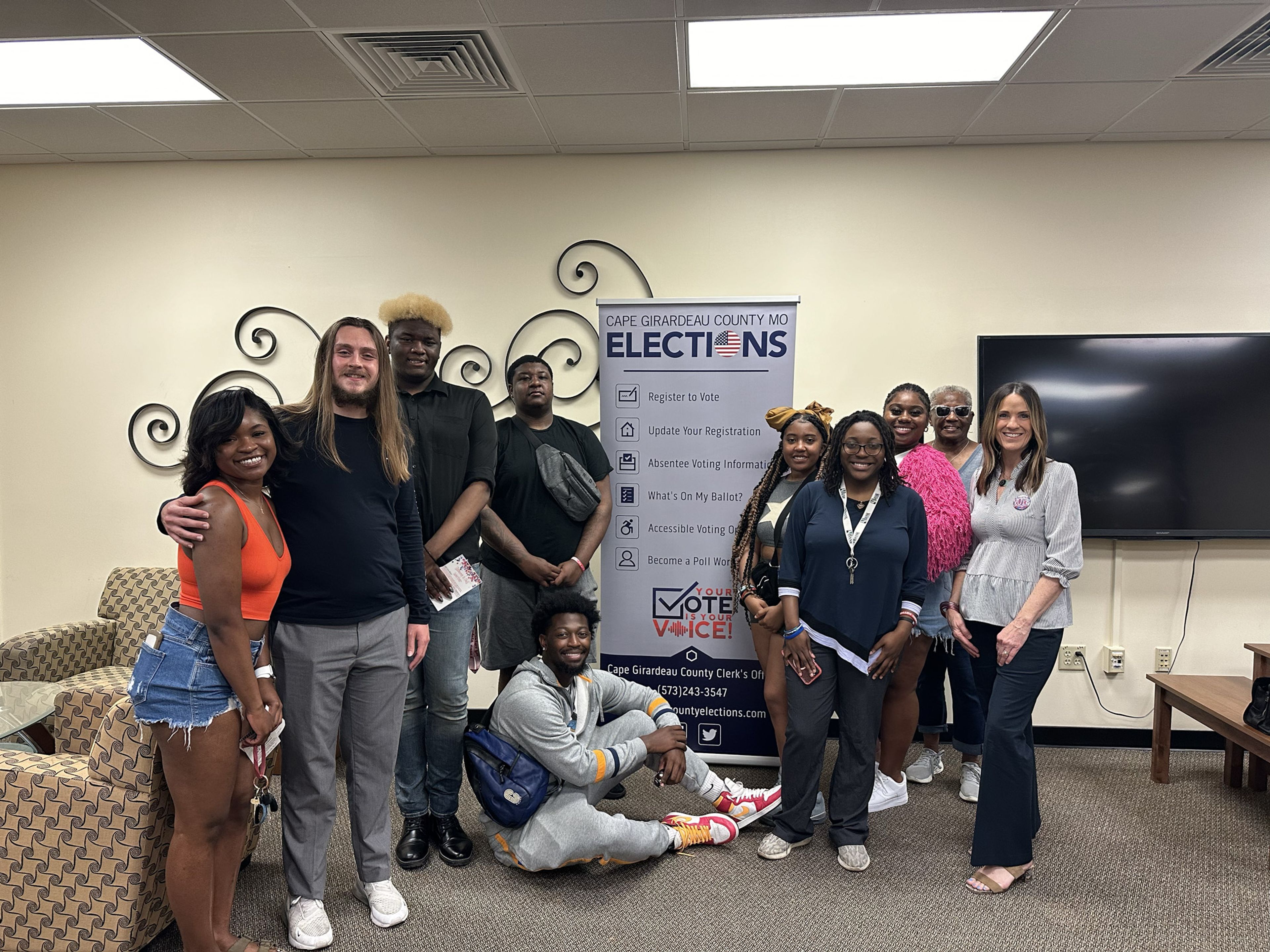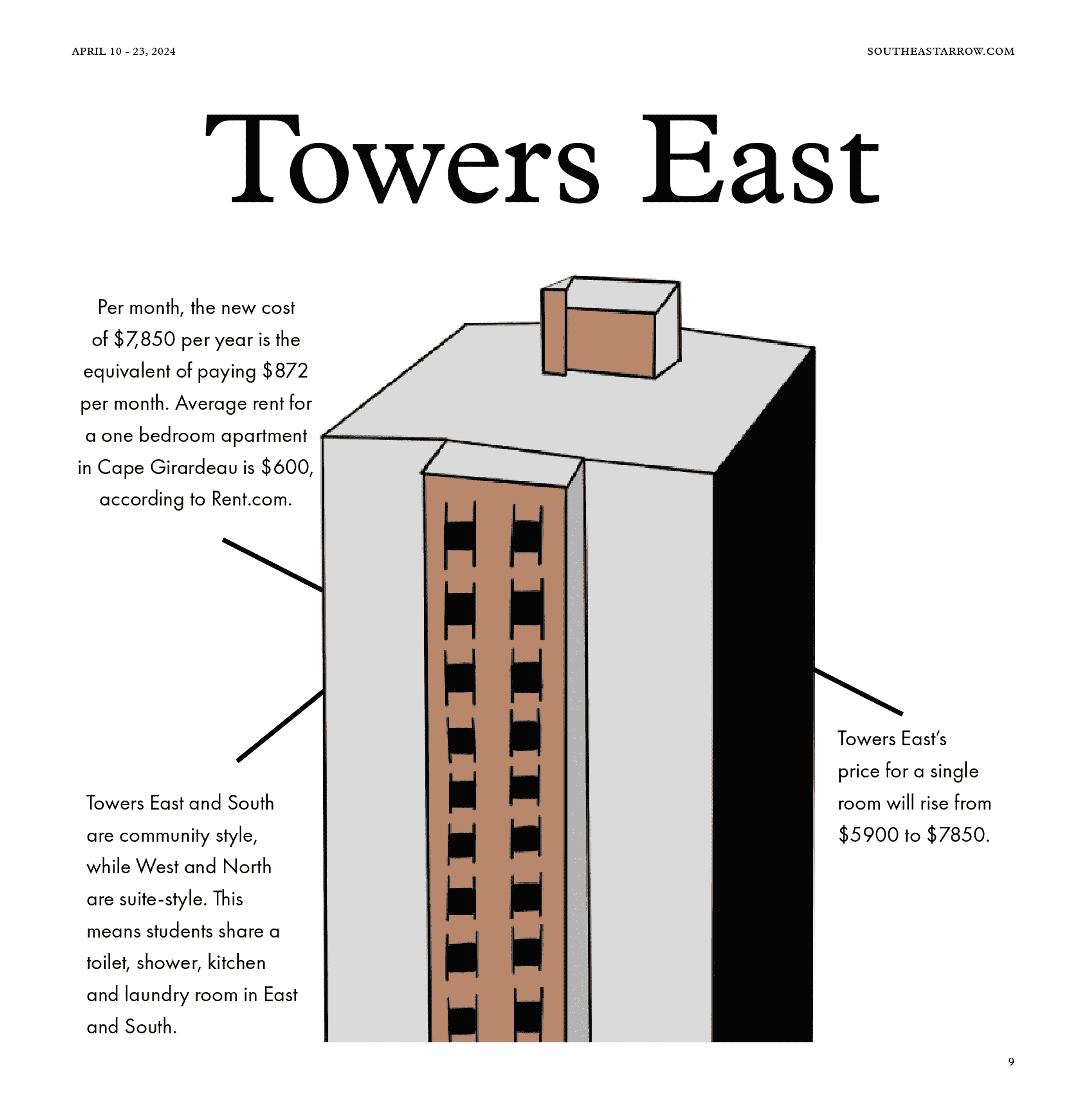Southeast Missouri State University students and faculty members gathered at the University Center on Feb. 19 to join the Black Student Union for its "Let's Talk Privilege" discussion which focused on the impact privilege has on minorities and ways to overcome it. The discussion was facilitated by YouTube stars asiaSayWHATT and Colby who are the hosts of the Let's Be Real Show where they discuss and debate current events and other topics in a way that connects to college students.
"We decided to bring them in to bring something different to the week," Shaibriel Mack, the webmaster for the Black Student Union, said. "We want people to just learn. A lot of people do not know what white privilege is or what it really entails, so we want to talk about that and how it affects different categories of life like health, living arrangements, so we want to delve into it and say, 'This is what white privilege is and this is how it affects minorities.'"
This event was part of a series called "History in the Making: The Progression." The series was set to take place throughout the entire week, but due to the closing of Southeast because of weather, it kicked off Wednesday with an open mic night.
The discussion began with 10 audience members being asked to hold crushed pieces of paper and stand in a straight line. As they did, BSU members then read aloud different privileges and asked those who defined themselves as being able to have such privilege to take one step forward and those who did not to take one step back.
Statements such as "I can be sure that my children will be given curricular material that testifies to the existence of their race," or "I can choose makeup or bandages and have them, more or less, match my skin tone" were read and when they were completed, the students were asked to try to shoot their piece of paper into a trash can that was located at the front of the room. A significant gap had developed between the students of color and those who were not with many people being at completely opposite ends of the room, making the shot impossible to make for some, thus showing how privilege can truly hold back individuals.
The discussion ranged in topics from the impact of slavery on African American communities to the destruction of black businesses during the 1940s during what was known as "Black Wall Street." The fact that both white and black Americans often deny that race is still a significant issue in the United States was also discussed along with privilege in regards to education and housing. One example that was shared was about how many schools in predominantly African American communities supply students with inadequate text books, which can then be traced back to a number of factors including redlining or racially motivated housing discrimination that causes African Americans to be unable to own homes. This then robs schools of the tax money they could be receiving. Also, privilege's impact on health and access to nutrition were discussed.
Many students, along with asiaSayWHATT and Colby, shared their own personal experiences with racism, stereotypes and how they feel that privilege has impacted their own lives.
Kaye Grimmett, a junior majoring in communication studies, shared how she felt about stereotypes often placed on African Americans, but in many instances she has noticed it comes from not just non-minorities but African Americans themselves.
"I think a big part of the problem within the problem of already being stereotyped is that we often stereotype ourselves," Grimmett said. "How can we change our mindset so that we don't stereotype ourselves. We know that we do not want to be those stereotypes, but they come from us as well."
Grimmett said she wanted to come to the forum to help support the Black Student Union and that she learned a lot of new information from attending.
"I wanted to come and show support for a black organizations event on campus because I notice that there are not a lot," Grimmett said. "I took away that we have a lot of work to do, but it was also a freeing time for people to get things off their chest. There are a lot of system issues and stereotyping, but there is a lot we can do if people just work together. This is a touchy topic and people want to shy away from them, but in my opinion, I don't think you should shy away from something that is uncomfortable. If we aren't talking about these things then we are doing ourselves a disservice, and it would be even better if we had more diversity represented in this discussion."
The event concluded with a discussion on how to overcome the obstacles created by privilege, racism and discrimination like minorities gaining a higher education, striving to become homeowners and voting in not just national, but local elections.
"It all starts in the polls," Colby said. "If I want someone to accurately represent me then I need to go out and vote."
Mack said that having events like this allows students to be involved and have conversations that, while at times are uncomfortable, need to be had.
"As BSU we wanted to bring together the black community to give us something to participate in," Mack said. "We do it to promote the group as well but we also do it to help people on campus get involved. A lot of people don't do anything but go to their classes, and we want you to get out and do things and meet people and get out and be social."
During the end of the Fall semester a grand jury in St. Louis County decided against the indictment of police officer Darren Wilson who shot and killed an unarmed young man named Michael Brown, causing various protests to take place across Southeast's campus and within the Cape Girardeau community. Mack believes that this case and the effects she believed it had on campus have helped to spark a conversation about race that students should be having.
"I feel like a lot of things have been going on recently with the Mike Brown cases and things like that. It's time for people to talk about it," Mack said. "We're afraid to talk about it, and there is really no one facilitating that discussion so I decided it's BSU, why not do it through this platform?"
Mack said she feels the university has been making strides to help create more dialogue, and she hopes to see results soon.
"A group of people have been speaking with the dean of students, Student Government and President Dobbins, and they have been trying to help us get forums together so we have been trying to work with them," Mack said.
More information about the Black Student Union and its upcoming events can found on Instagram and Twitter at @SEMO_BSU.




